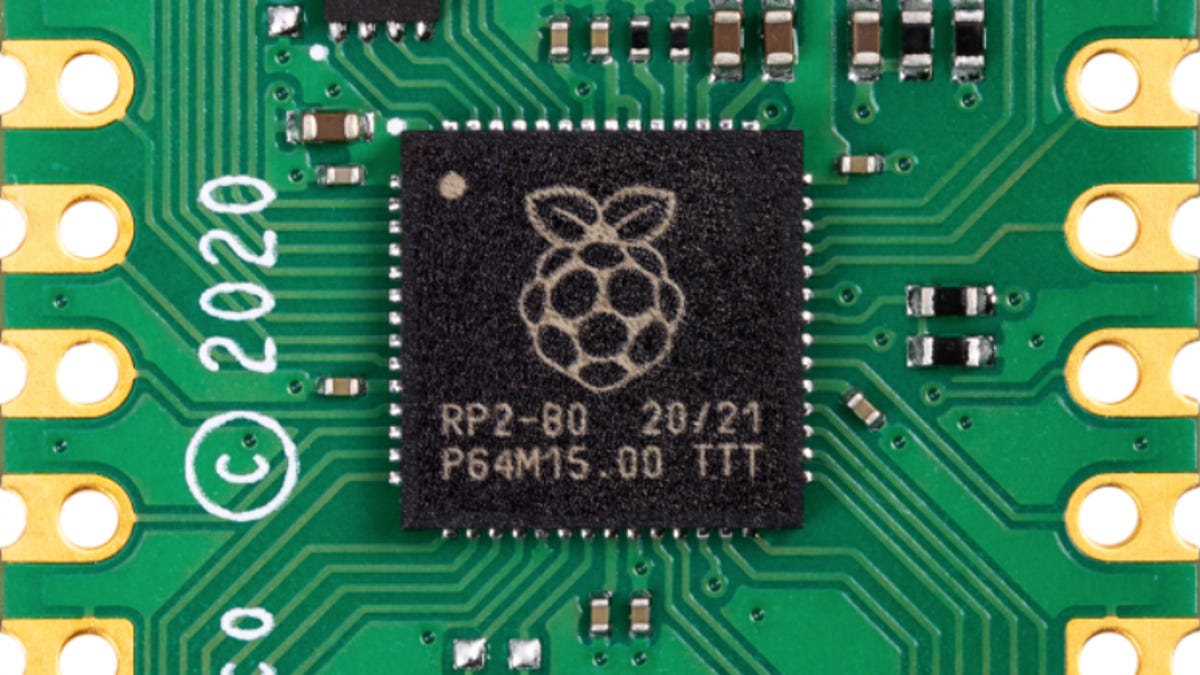Raspberry Pi announces $4 microcontroller
The Pico chip is available now for pairing with Raspberry Pi mini computers.

The Raspberry Pi Pico.
Raspberry Pi on Thursday announced the launch of its first microcontroller product. The $4 Raspberry Pi Pico is powered by a new chip developed by the company. The 7x7mm chip has 40nm silicon with a dual-core Arm Cortex-M0 processor.
Raspberry Pi has sold over 37 million products to date. Its mini computers cost just $35, but sometimes need to be paired with a microcontroller. Until now, Raspberry Pi hadn't developed its own.
Read more: Raspberry Pi 400 packs a full computer into a keyboard for $70
Here's the full list of specs for the Raspberry Pi Pico:
- Dual-core Arm Cortex-M0+ @ 133MHz
- 264KB of RAM
- 16MB of Flash memory
- DMA controller
- Interpolator and integer divider peripherals
- 30 GPIO pins, four of which can be used as analogue inputs
- 2x UARTs, 2× SPI controllers, and 2× I2C controllers
- 16x PWM channels
- 1x USB 1.1 controller and PHY, with host and device support
- 8x Raspberry Pi Programmable I/O (PIO) state machines
- USB mass storage boot mode with UF2 support
You can buy it online now, or get one for free in the Feb. 2021 issue of HackSpace magazine.

